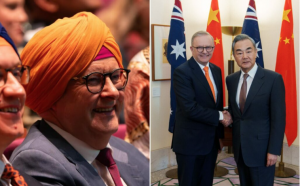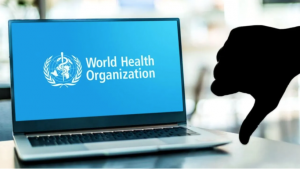Doug Casey on the death of privacy… and what comes next

International Man: In practically every country, the allowable limit for cash withdrawals and transactions continues to be lowered.
(Article by Doug Casey republished from InternationalMan.com)
Further, rampant currency debasement is lowering the real value of these ridiculous limits.
Why are governments so intent on phasing out cash? What is really behind this coordinated effort?
Doug Casey: Let me draw your attention to three truths that my friend Nick Giambruno has pointed out about money in bank accounts.
#1. The money isn’t really yours. You’re just another unsecured creditor if the bank goes bust.
#2. The money isn’t actually there. It’s been lent out to borrowers who are illiquid or insolvent.
#3. The money isn’t really money. It’s credit created out of thin air.
The point is that cash is freedom. And when the State limits the utility of cash—physical dollars that don’t leave an electronic trail—they are limiting your personal freedom to act and compromising your privacy. Governments are naturally opposed to personal freedom and personal privacy because those things limit their control, and governments are all about control.
International Man: Governments will probably mandate Central Bank Digital Currencies (CBDCs) as the “solution” when the next real or contrived crisis hits—which is likely not far off.
What’s your take? What are the implications for financial privacy?
Doug Casey: CBDCs are proposed as a solution, but in fact, they’re a gigantic problem.
Government is not your friend, and CBDCs are not a solution.
If they successfully implement CBDCs, it would mean that anything you buy or sell, and any income you earn, will go through CBDCs. You will have zero effective privacy. The Authorities will automatically know what you own, and they’ll be in a position to control your assets. Instantly.
They’ll be able to add CBDCs to the accounts of favored people and subtract from or block access to the accounts of those who aren’t. Digital dollars will be easy to implement since everybody already has a government ID and a Social Security account. Everybody has a smartphone. Soon everybody will have a CBDC account as well. If you lack any of these things, it will certainly ding your oncoming Social Credit Score.
I’ll go so far as to say that Central Bank Digital Currencies and digital “health passports” may be the most dangerous threats to the freedom and independence of the average human being in modern history. They will allow the State to easily control where you can go, what you can do, and what you can own. They’re both very big deals, and they’ll be daily facts of life.
In today’s world, it’s increasingly dangerous to say things that run counter to what’s considered politically correct. If you can’t say something, it’s much harder to do something. And indoctrination through education and the media are making it hard to even think. We will soon be living in a society where you can neither think, say, nor do anything that isn’t PC. Again, the problem is promoted as a solution.
It’s much like what happened during the great COVID hysteria, which was a relatively minor problem from a medical point of view. The State solution was mass lockdowns and mass vaccination. The solutions were much worse than the problem.
In any event, free speech is dying with cancel culture, trigger warnings, safe spaces, and penalties for so-called hate speech. Free speech should be an absolute—including so-called hate speech.
I’d like to reemphasize that although “hate speech” is typically impolite, unpleasant, and acrimonious, it is, perhaps paradoxically, a good thing. Why? Because it allows you to identify what’s going on in the mind of the person who utters it. And I would much rather know what somebody’s thinking and what somebody’s likely to do than have a tight lid put on so-called hate speech. I prefer knowing who I’m dealing with and what they think and feel.
International Man: It’s not just financial privacy but privacy across the board that is being buried.
Cellphones, so-called “smart” appliances, electric vehicles, social media, and other electronic devices create an all-encompassing surveillance system that most people voluntarily opt into.
What is really going on here?
Doug Casey: It’s been said that while art imitates life, life also imitates art. Especially when we look at George Orwell’s famous novel, 1984. In the book, Big Brother had ubiquitous video screens monitoring what the plebs did. We now have hundreds of millions of cameras all around the world—not counting billions more in smartphones. Universal surveillance is making for very grim times.
Recently, Klaus Schwab of the World Economic Forum said that everything will be “transparent”—a euphemism for darker things. But don’t worry: you have nothing to fear, he said, if you do nothing wrong. That’s ridiculous. It’s exactly what the Stasi, the KGB, and the Gestapo said.
I wonder if Schwab would be willing to have a camera observe him in his bathroom and bedroom, when he visits his safe deposit box and has a private conversation with friends—or fellow conspirators? Of course not. Transparency is only for the potentially dangerous plebs, who may not share the views of their betters.
One of the differences between a civilized society and a primitive, barbaric society, is privacy. In primitive societies, privacy doesn’t exist. You have paper-thin walls in your hut. Everybody sees everything you do and everybody you talk to.
One of the nice things about civilization is that you can get away from other people and keep them from observing you. Privacy is one of the central elements of civilization itself.
Eliminating privacy, whether it be personal or financial, is not only an aggression against individuals but destructive of civilization itself. Schwab’s “transparency” is a regression towards barbarism.
International Man: It seems privacy is dead for most people.
If that is the case, what comes next? Where is this trend headed?
Doug Casey: The first time that it became apparent to me on a personal level was at a police station in D.C., where I was paying a fine for some traffic violation. I got to chatting with the cop in back of the computer screen. This was a long time ago, in the late 70’s.
And as we talked, he said, in a friendly way, “Look, you don’t have any idea how much information we have on you—but it’s a lot.”
He wasn’t trying to intimidate me; he was just observing a fact. And that was a long time ago.
About 25 years ago, Larry Ellison, the head of Oracle Corporation, came out and made a shocking statement to the effect of “Privacy doesn’t exist, forget about it.” At the time, I thought it sounded like Ellison approved of it, but now I don’t think that was the case. He was just pointing out a reality.
Most recently, Arnold Schwarzenegger made an ad during the COVID hysteria. He said, “To hell with your freedom,” encouraging people to stop protesting about getting their shots.
Children no longer say, “Hey, it’s a free country,” when one says or does something that another doesn’t like.
People have been programmed not to take privacy seriously. Worse, they’re now suspicious of it and passively accept the fact that it doesn’t exist.
With China’s Social Credit System, everything you do, everywhere you go, and even everything you say is recorded and reported. We’re going to get our own version. You’ll be rewarded or punished according to what the ruling elite think is good or bad.
So the question is: when, if ever, will this trend turn around? Well, I’m not sure it’s any longer a question of “when.” It’s more a question of “if”—at least within a reasonable time frame. The trend is not only still in motion but accelerating. A lack of privacy means a lack of freedom. And a lack of freedom is what characterizes a serf—although in today’s world, you’re a serf with a high standard of living.
International Man: How can the average person protect their privacy and limit their exposure to State and corporate surveillance?
Doug Casey: Limit airing your personal thoughts and actions on Facebook, LinkedIn, and similar types of social media. It’s all accessible to anybody and makes it much easier for the State to control you.
In my case, I’ve made part of my living by doing the opposite of what you should do. I understand it’s a contradiction. It’s the path that I’ve chosen. But from a personal freedom point of view, it’s not a wise path. I’m reluctant to say so, but I’d advise others not to choose it. It amounts to painting a target on your back.
At this point, if you want to maximize your personal freedom, you ought to consider living in a country where you’re not a citizen. That’s because governments consider citizens to be their subjects, their assets, their property. However, when you’re a foreign citizen living in a foreign country, the local government tends to consider you a non-threat, almost a non-person. Sad to say, in today’s world, from a personal freedom point of view, you’re better off not living in your own country. That certainly includes the US and Canada.
From a financial point of view, it’s very important that you own and hold physical gold and silver, physically in your own possession, as opposed to electronically. Paper or electronic accounts are fine for speculating. But you want to have a considerable cache of the physical metals for safety. Plus, at some point, they will revert to day-to-day money.
Lastly, put a layer of protection between you and the bad guys. Don’t be afraid to use corporations and trusts in the right jurisdictions. Create barriers to make it harder for the bad guys to find out who owns something and where that person really is.
Source: https://www.tyranny.news/2023-05-29-death-of-privacy-and-what-comes-next.html







